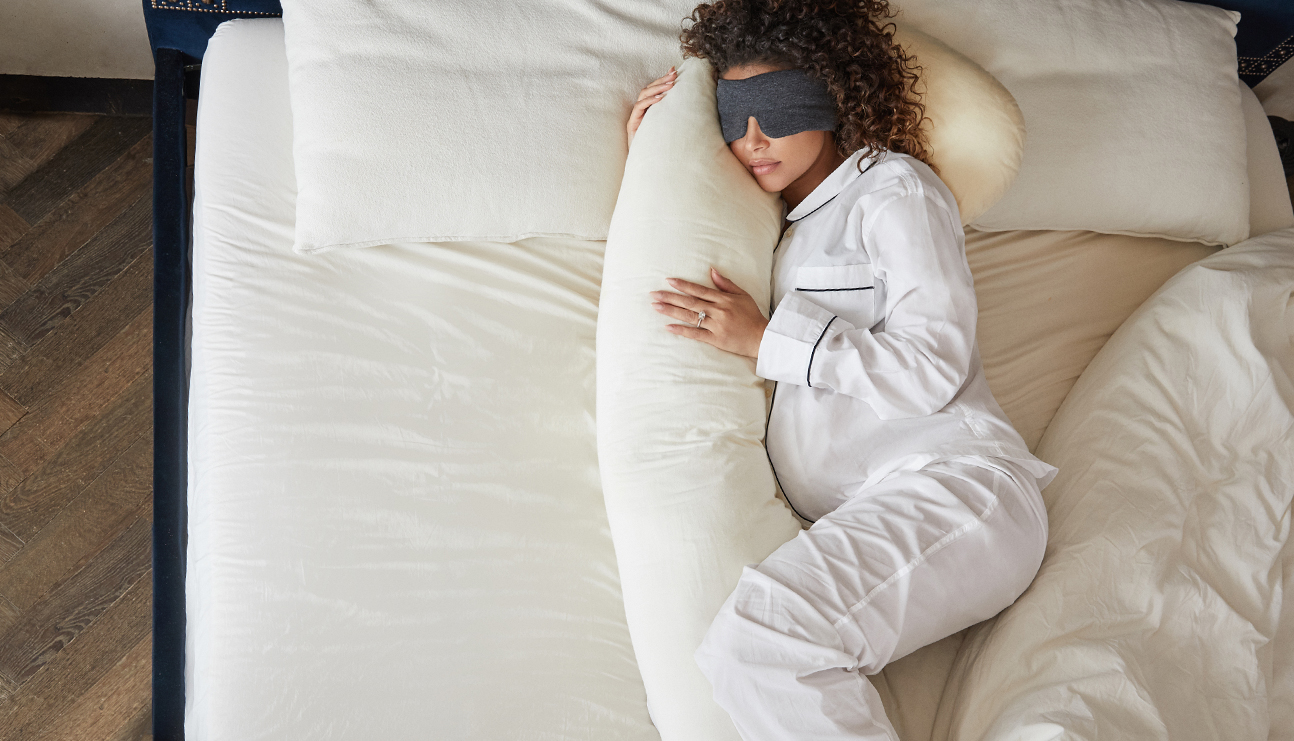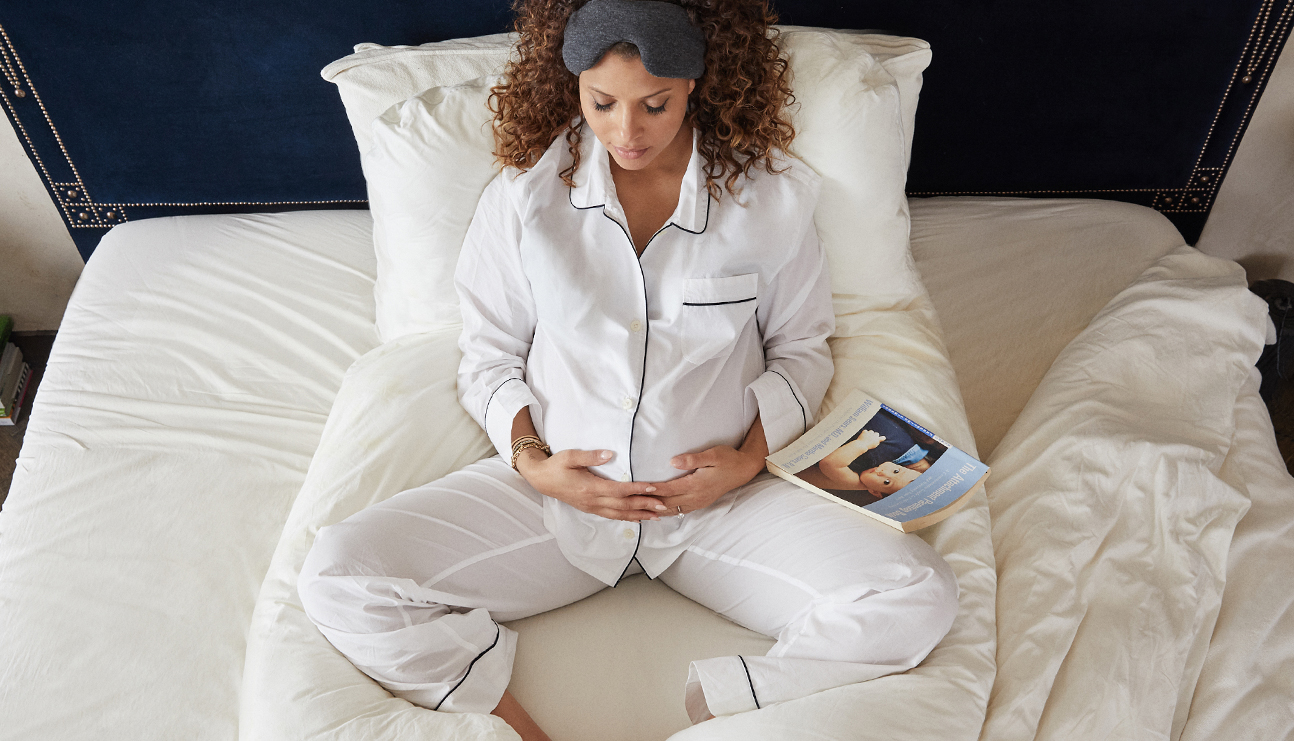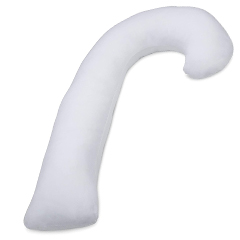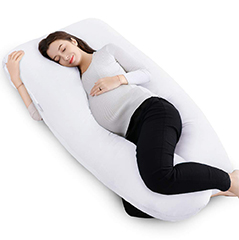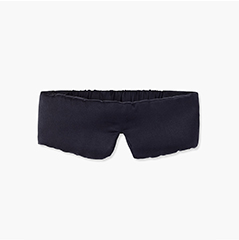5 Simple Tips For Better Sleep When You’re Pregnant
It may not happen till your third trimester or it may be during your entire pregnancy, but at some point sleep might be hard to come by. Whether it’s mama anxieties that are keeping you awake or frequent urination, trouble sleeping is pretty common. In fact, research says that up to 94% of women will experience insomnia during their pregnancy. While one night of missed sleep might not disturb you too much, the ability to function after a few nights of tossing and turning is slim. Especially since women naturally need more rest when they’re pregnant. So what’s a pregnant restless mama to do?
Create A Sleep Routine
Most experienced parents know that creating a sleep routine for a baby is a successful technique in getting your little one to bed, well that’s true of adults too. Having a consistent routine right before bed will help to wind you down from any anxious feelings you might be experiencing. Additionally, doing the same thing every night before bed sends cues to your brain which then signal to the rest of your body, that it’s time to slow down and get ready for sleep. If you can also manage to add going to bed and waking up at the same time every day to your routine, then even better.
Invest In A Body Pillow
A body pillow might be your partner’s worst enemy, but it will become your best friend. Sleeping on your side will probably feel better on your body between weeks 15 and 20 and throughout the rest of your pregnancy. That’s also around the time midwives, doctors, and birthing professionals will advise pregnant mamas to sleep on their side rather than on their backs. Sleeping on your back after your 20-week mark can decrease blood circulation to your heart and your baby due to the compression of the aorta and vena cava blood vessels. All of that being said, sleeping on your side can cause a significant amount of pressure on your hips and back. Enter a body pillow!
Propping a candy cane shaped pillow in between your legs can help alleviate that pressure on your hip, touching knees and lower back. As well as provide additional support for your head and neck.
If you’re a notorious back sleeper (or you want more options) than a U shaped body pillow is the better investment. Propping yourself up so that the chest and both knees are slightly lifted can help back sleepers find comfort. It also makes for a wonderful position for resting, meditating, reading a book and eventually breastfeeding. Those suffering from nasal congestion, which seems to get increasingly worse during the later months of pregnancy will also find relief from laying in a propped up position. Maintaining this will help drain your sinus, help you breathe easier and rest better. This position also helps alleviate heartburn. The U shaped pillow will provide full body support from your neck down to your ankles.
By the way, if you went to bed on your side but happen to wake up on your back, don’t freak out—just adjust.
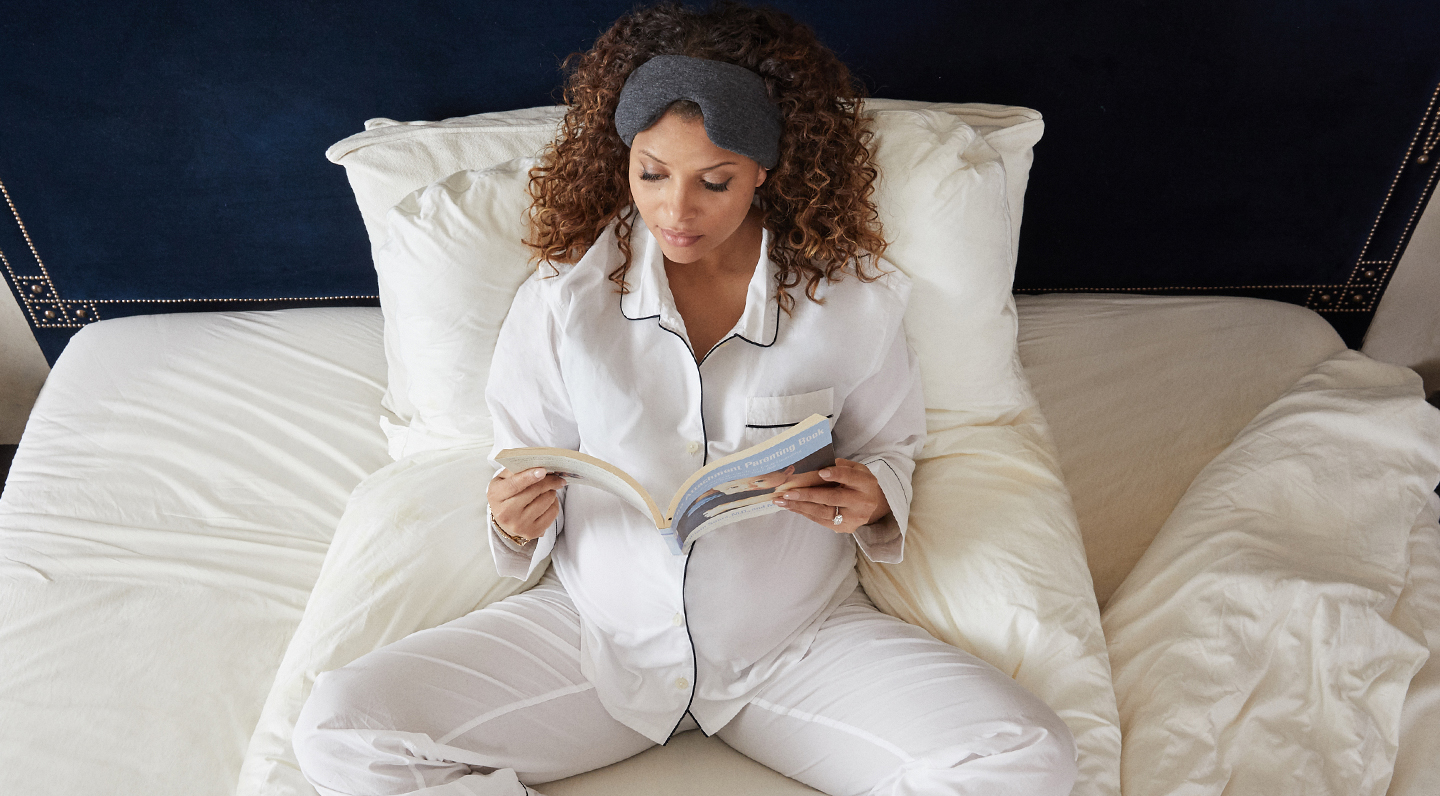
Read A Book
Pull out one of the many books on your nightstand and read. Sleep research has shown that less than ten minutes of reading every night can help you fall asleep easier. Keep your reading choice light. Try to stay away from books that might stir up birthing or mothering anxiety, intense novels, or scary tales.
Avoid watching TV or mindless scrolling on your iPhone which can overstimulate you before bed and end up keeping you awake longer.
For a short list of great pregnancy books to read click here.
Take A Warm Bath
Taking a warm (but not hot) bath or shower can help relieve tension or soreness in the muscles and is also a great way to turn down. You can add another sensory cue by adding lavender (an essential oil) to your bath.
Dissolving magnesium chloride flakes to a warm bath is a very effective way to find comfort, relieve restlessness, body aches, pains, and leg cramping. However, magnesium is a potent mineral so you should use it only under your midwife or doctor’s supervision.
Be mindful about bath water temperature, as well. You don’t want to sit in a hot bath for a long time. Ideally, the water’s temperature should be as close to body temperature as possible, not too hot nor too cold. Fifteen minutes seems to be the most consistently recommended time for a bath when pregnant.
Give In and Get Up
When nothing else seems to work, give in and get up. Rather than continue to upset yourself tossing and turning, attend to nesting or errands around the house. Don’t take on anything too strenuous, think light work. Start writing those thank you cards for baby gifts or organizing baby clothes. This will eventually bring on drowsiness.
Other simple ways that can help you sleep better include making time for daily gentle exercise, meditating, limiting your caffeine intake and avoiding large meals before bed. Getting a majority of your fluids during the day will allow you to cut back on drinking before bed. This can minimize the number of times you’ll need to get up to use the bathroom. Lowering the temperature in your room, sleeping with an eye mask and journaling can also help you find comfort.




